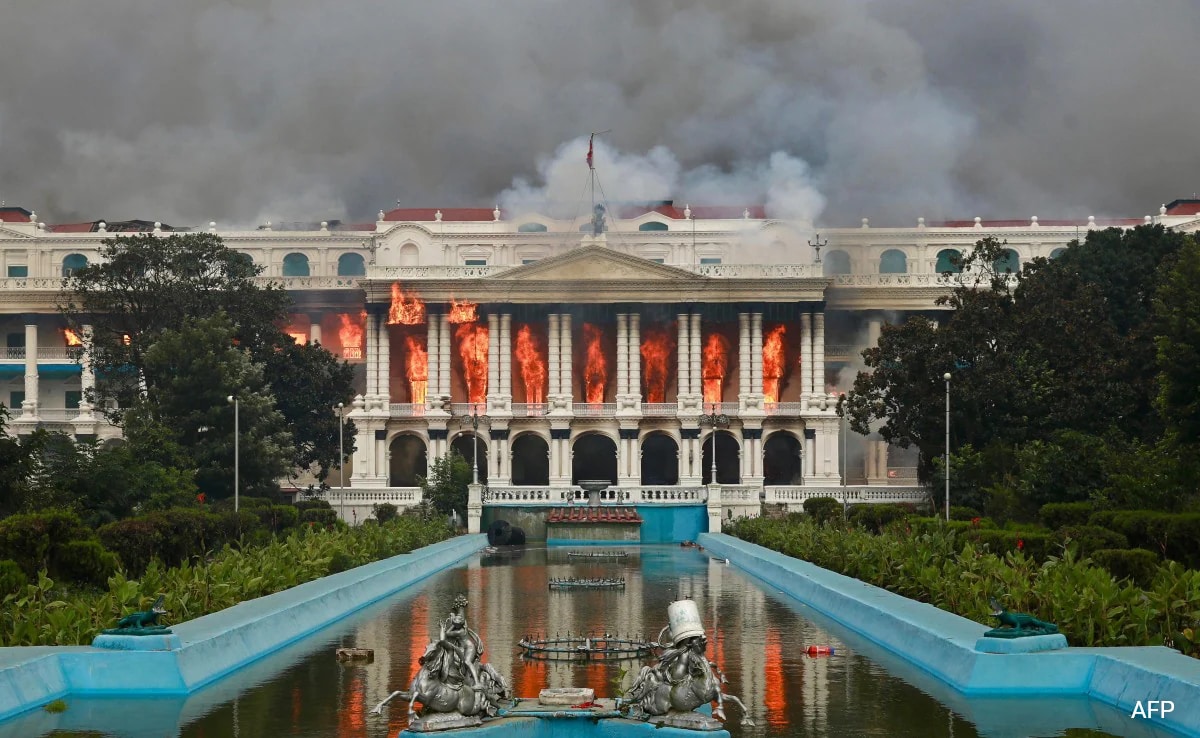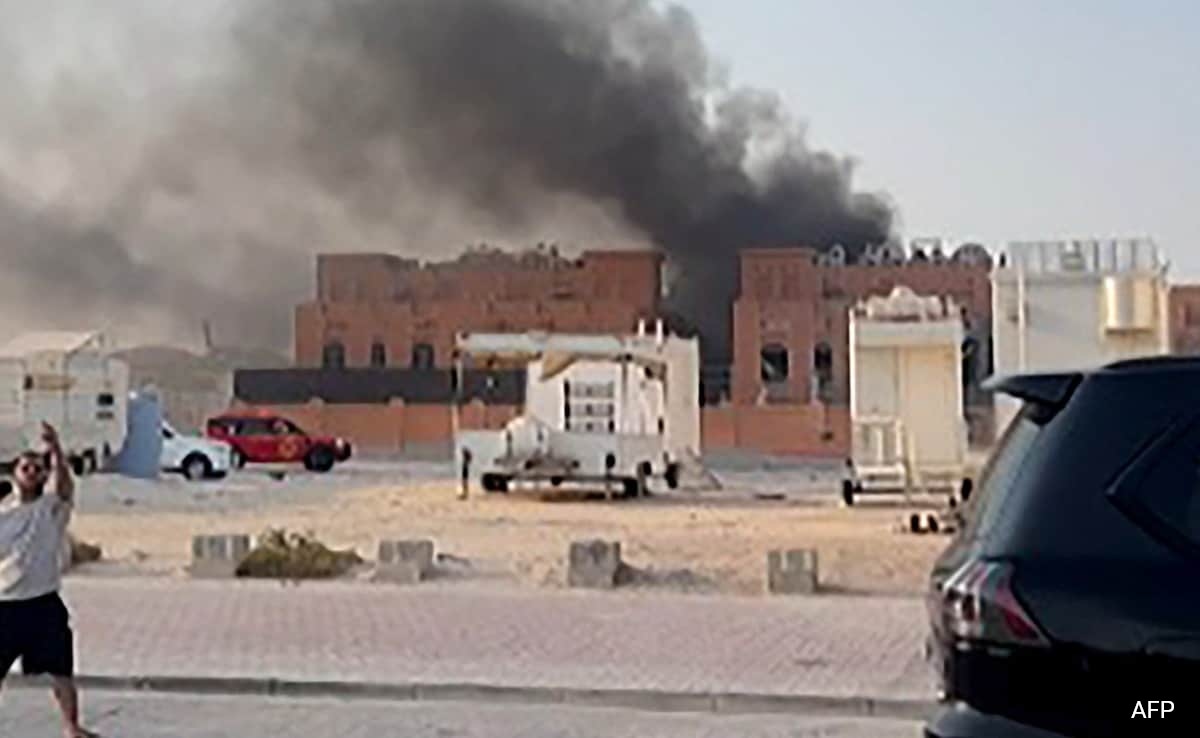The video call comes during an unprecedented low point in U.S.-Russia relations, especially over Ukraine, as Moscow pressures Washington to meet its demands. The White House has threatened Russia with âserious consequencesâ â believed to be financial sanctions that would cut the country off from the global financial system â if it pursues military action against Ukraine.
Putin plans to outline Russiaâs proposals to Biden, Kremlin spokesman Dmitry Peskov said Monday, and their talks are expected âto be quite long and substantive.â
After a meeting with Secretary of State Antony Blinken in Stockholm last week, Foreign Minister Sergei Lavrov said that he did not even want to speculate âabout whether the West would refuse to consider them. To my mind, everyone has heard President Putin and grown aware that our proposals are serious.â
Biden, however, said Friday that he âwonât accept anybodyâs red line.â
Putin âis not bluffing and he is prepared to undertake a military operation against Ukraine,â said Tatiana Stanovaya, the head of a think tank called R.Politik.
But that Putin will meet with Biden amid heightened tensions between Moscow and the West shows that Putin considers Biden as someone âwho is ready to talk seriously about Russian concerns,â Stanovaya said.
âPutin really saw something in Biden,â she added. âMaybe for the first time in many, many years, Putin has a hope that with Biden, there is a real chance to try to find an understanding.â
The two last met in Geneva in June, and though that summit resulted in few breakthroughs, it has led to more communication between the White House and the Kremlin, including several top administration officials visiting Moscow in recent months.
The Geneva meeting also came amid an earlier Russian troop buildup around Ukraine, though forces were later partially pulled back. That spring show of force was dismissed by most analysts as testing the new Washington administrationâs support for Ukraine.
The latest troop movements have caused greater alarm in the West. U.S. intelligence has found the Kremlin could be planning a multi-front offensive as soon as early next year involving up to 175,000 troops, according to U.S. officials and an intelligence document obtained by The Washington Post.
The rhetoric from Russia is that itâs the one being threatened. In an address to Russiaâs Foreign Ministry Board in November, Putin warned that the West has a âsuperficial approach to our warnings about red lines.â He pointed to how the United States and its allies supply Kyiv with lethal weapons, conduct âprovocativeâ military exercises in the Black Sea and fly strategic bombers just 12 miles from Russiaâs borders.
Heâs also warned against stationing missile-defense systems in Ukraine similar to those in Romania and Poland, claiming that they could be secret offensive weapons capable of reaching Moscow within 10 minutes.
âFor him, itâs all about personal survival,â said Pavel Felgenhauer, a Moscow-based military analyst. âIf youâre sitting in the Kremlin for more than 20 years ruling Russia, you get paranoid.â
Putin could insist on NATO stopping all military cooperation with Ukraine, including training exercises, Stanovaya said. The United States has provided military support to Ukraine, including equipment such as patrol boats and Javelin antitank missiles. Biden administration officials have also said they are looking for ways to strengthen military deterrence on NATOâs eastern flank.
Putin âwould like for Ukraine to know firmly that it will never be part of NATO and for the West must be clear about it,â Stanovaya said. âAnd it means that Western politicians should not give any hopes or inspire Ukrainian elites about the prospects for NATO.â
Practically, Kyivâs aspirations to join the military alliance have long appeared unlikely. Despite President Volydymyr Zelenskyâs renewed push this year to greenlight Ukraineâs ascension, the country hasnât received a Membership Action Plan, the first step. Biden in June said that âschoolâs outâ on Ukraineâs candidacy because the country still has to âclean up corruptionâ before itâs considered.
Thatâs no secret to Moscow. Dmitry Kiselyov â the host of the state television program âVesti Nedeliâ (âNews of the Weekâ) and a leading figure in the countryâs propaganda hierarchy â said Sunday that âUkraine is taking the bait of the irresponsible nudging from the West, believing that someone there is ready to die for it. They are not.â
Some analysts have speculated that the Kremlinâs insisting on guarantees from NATO â which are unlikely to be given, and even if they are, unlikely to be trusted â could just be the pretext for plans Russia has already set in motion.
In a commentary for the Carnegie Moscow Center, Alexander Baunov said that âthese overwrought statements are an attempt to absolve itself of responsibility for its future actions: alas, Moscow had warned of the coming storm, and called for action, but to no avail.â
Mary Ilyushina and Natalia Abbakumova contributed reporting.
.png)











 English (United States) ·
English (United States) ·  Turkish (Turkey) ·
Turkish (Turkey) ·